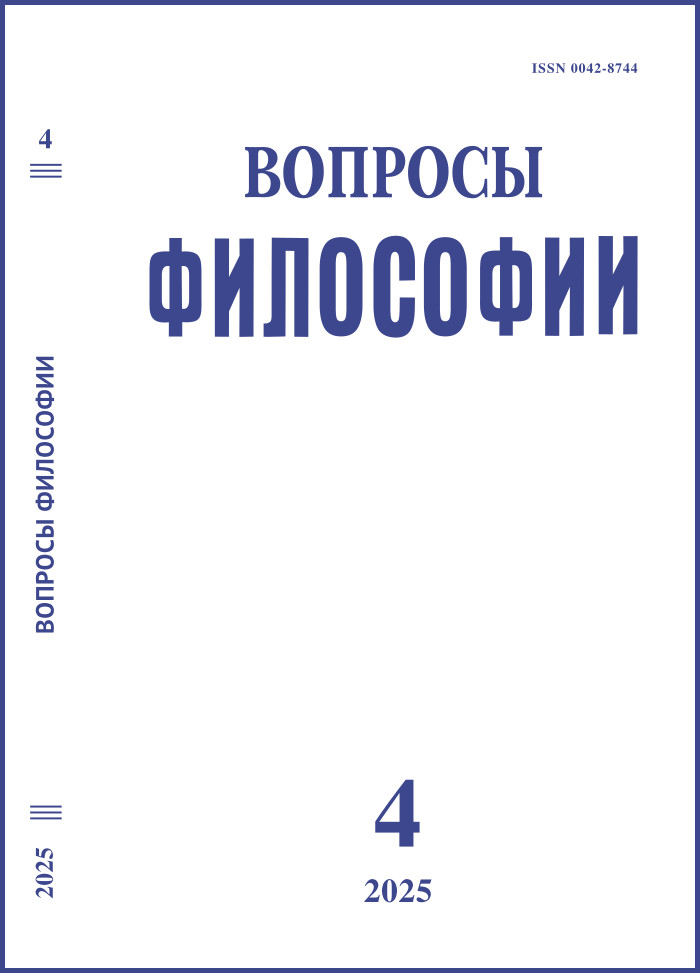Conceptual Engineering: Towards an Idea of Philosophical Rhetoric
DOI:
https://doi.org/10.21146/0042-8744-2025-4-60-67Keywords:
parrhesia, rhetoric, conceptual engineering, rhetoric of science, management of meaning, cognition, subjectivityAbstract
The article examines the idea of conceptual engineering – a modern, actively developing philosophical trend that identifies the possibilities of changing social, political and cultural ideas through analysis, criticism and semantic adjustment of “problematic” scientific and philosophical concepts and their subsequent implementation into the linguistic sphere of society. The connection between the research perspective of the direction and rhetoric, expressed in the formula “how to speak and about what”, is substantiated. It primarily concerns the public function of philosophy and science, which manifests not only in making theoretical knowledge accessible, but also in acting as a critic and regulator of socially significant trends. To problematize the tasks and methodology of conceptual engineering, the article analyzes the idea of ancient parrhesia – the practice of philosophical “true speech” that pursued a change in the subject’s way of thinking and life – in its comparison with rhetorical art. Their fundamental differences, highlighted by M. Foucault, are demonstrated and common features are identified. A thesis is proposed regarding the ambiguity of the relationship between parrhesia and rhetorical art. It is shown that “true speech” without a rhetorical component loses its functionality. The idea of philosophical rhetoric and its importance for the problematic field of conceptual engineering is substantiated.

